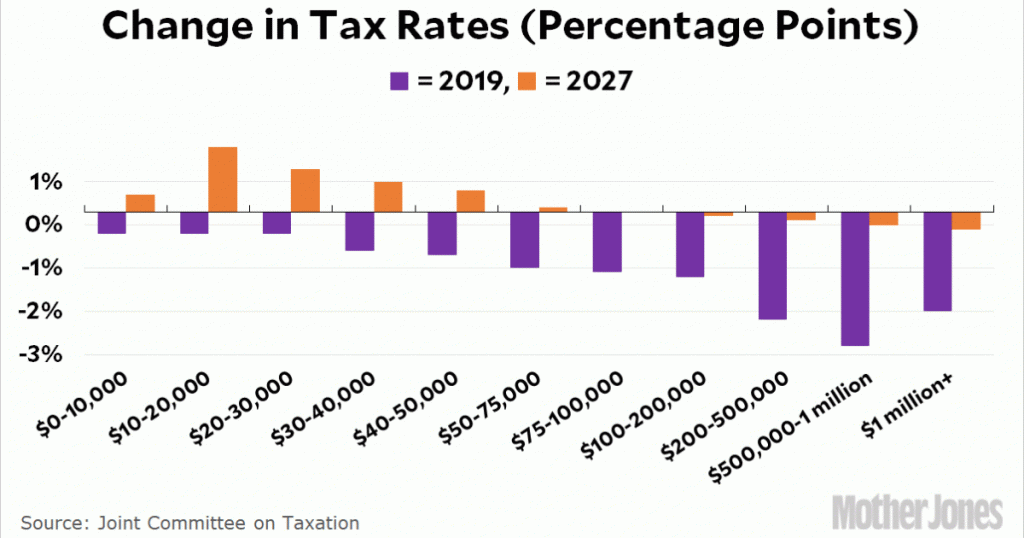There’s No Reform in the Republican Tax Reform Bill
Looking for news you can trust?Subscribe to our free newsletters.
Matt Yglesias writes today that, to the extent tax cuts have any effect at all, it’s only if people think they’re permanent. But with political polarization so strong, there’s no way that anyone can believe a tax change passed on a party-line vote is likely to last:
These days, nobody likes preachy blue-ribbon commissions, and bipartisanship is a total nonstarter in Congress. But if you actually want to generate supply-side tax effects, you need to create an expectation of permanence. And bipartisanship seems like one of the only plausible ways to accomplish that.
This gets at my biggest gripe about the Republican tax bill. If they had truly wanted to pass corporate tax reform—of the kind passed in 1986—they could have gotten plenty of Democrats on board. Then there would have been no need to worry about all the weird reconciliation rules and no need to worry that it might get reversed a few minutes after Democrats are next in power. That’s because actual reform really is pretty bipartisan, and there are plenty of Democrats willing to look at ways to simplify the corporate code, close special loopholes and subsidies, and then lower rates.
But that was never what Republicans wanted to do. They like to call their plan a “sweeping” tax reform, but it’s not. It’s just a hodgepodge of changes designed to reduce corporate taxes—which are already among the lowest in the world—and act as a vehicle for a few other Republican hobbyhorses, like reducing the estate tax and killing the Obamacare mandate. It’s a nice payoff for corporations and the rich, but that’s it. There’s barely a paragraph of genuine reform in the whole thing.




